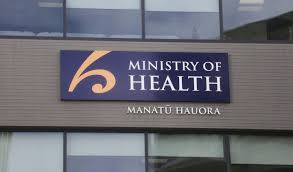At the beginning of April, the Ministry of Health started issuing a daily survey to collect information about the health and wellbeing of New Zealanders, how they are doing, and how they are being impacted by Covid-19.
The Ministry of Health is using this data along with other sources of information, such as call volumes to help lines, feedback from services and specialist mental health and addiction service data as ongoing monitoring of how people are doing.
In the most recent week of surveying, 99% of people told us they are getting along with other members of their household, 99% can support the wellbeing of their children and 95% are able to pay basic living costs. Most people report being happy with life as it is.
Thirty-one per cent of people experienced feelings of loneliness or isolation at times, and 8% reported depressive or anxiety-related symptoms, however, it hasn’t been possible to estimate how much of this is due to the impact of the Covid-19 restrictions.
Robyn Shearer, Deputy Director-General, Mental Health and Addictions says: “We know Covid-19 may have significant, long term effects on people’s mental wellbeing. It’s important to track how people are doing so we can target support where it’s most needed.”
 She adds, “We are aware that there is a lot of different research being conducted at the moment and each will use different methodologies and sample groups – which means they are likely to come up with differing results. All of this information provides us with a useful indication of what is going on.”
She adds, “We are aware that there is a lot of different research being conducted at the moment and each will use different methodologies and sample groups – which means they are likely to come up with differing results. All of this information provides us with a useful indication of what is going on.”
“We recognise some people are struggling, and we know that the level of need varies in different communities. That’s why we are making support and tools available. The survey gives us important information on the trend over time- which is currently showing overall improvement,” says Mental Health and Addiction Chief Clinical Advisor, Dr Arran Culver.
“The impacts of Covid-19 may be felt for some time and some of them may be out of our control. But that doesn’t mean mental distress is inevitable. Just like physical wellbeing, mental wellbeing is something that we can strengthen with practice. The stronger our mental wellbeing is, the better we’ll be able to cope with uncertainty and stress” he added.
Shearer says, “If we all act now and pay attention to our mental wellbeing – practicing good mental wellbeing techniques and accessing support when we need it – we can avoid a spike in mental distress in the months to come.”









